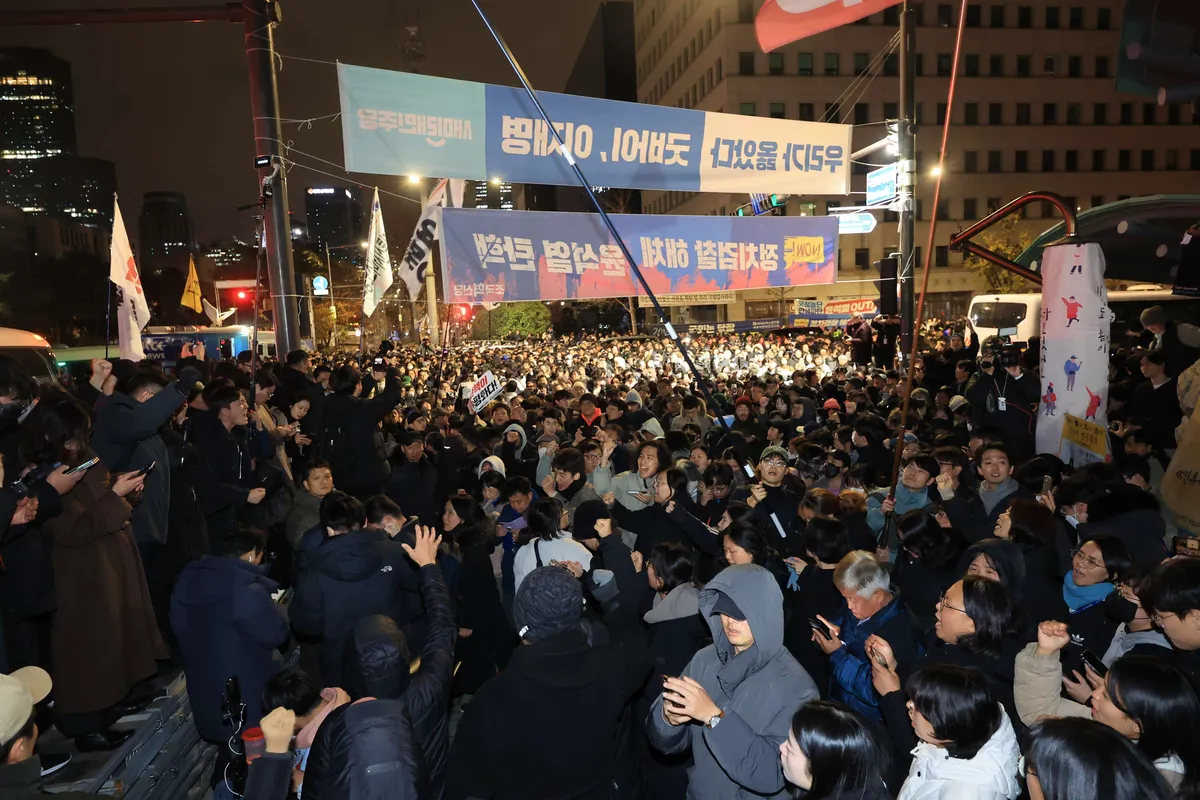The confused situation in South Korea has weighed on the markets in South Korea and elsewhere in Asia. A short-lived state of emergency was declared in the country. On Wednesday, however, the market has operated normally.
According to Reuters, South Korea’s Ministry of Economy promised to support market liquidity if necessary.
“We will direct an unlimited amount of liquidity to stocks, bonds, money and foreign exchange markets until the situation normalizes,” the ministry informed Reuters.
President of South Korea Yoon Suk-yeol has lost its support. Parliament is controlled by his opposition and the arguments started over the budget.
“The situation is constantly changing and volatility is expected in the market as the government is likely to have to be rebuilt and the impeachment process is evaluated,” Global Markets Strategist at Invesco David Chao reviews Bloomberg.
The opposition is preparing to impeach the president.
In the end, the unrest has been reflected rather weakly in the market. The Kospi index was at its peak in the morning with a drop of more than two percent and at eight o’clock it was down by around 1.3 percent.
However, the uncertainty has been reflected in the entire region and MSCI’s Asia-Pacific region index was down 0.3 percent.
In Japan, the stock market rumbled as the morning progressed and the Nikkei index rose 0.2 percent. The broad Topix closed down 0.2 percent. In China, the CSI 300 was down 0.1 percent in the morning and Hong Kong’s Hang Seng was up 0.2 percent.
In the morning foreign exchange market, the changes between the main currencies have been small. At 8:25 a.m., the euro fetched 1.0514 dollars, 157.68 yen, 0.82871 pounds or 11.577 Swedish kronor. The dollar was 149.95 yen and the pound was 1.2687 dollars.
